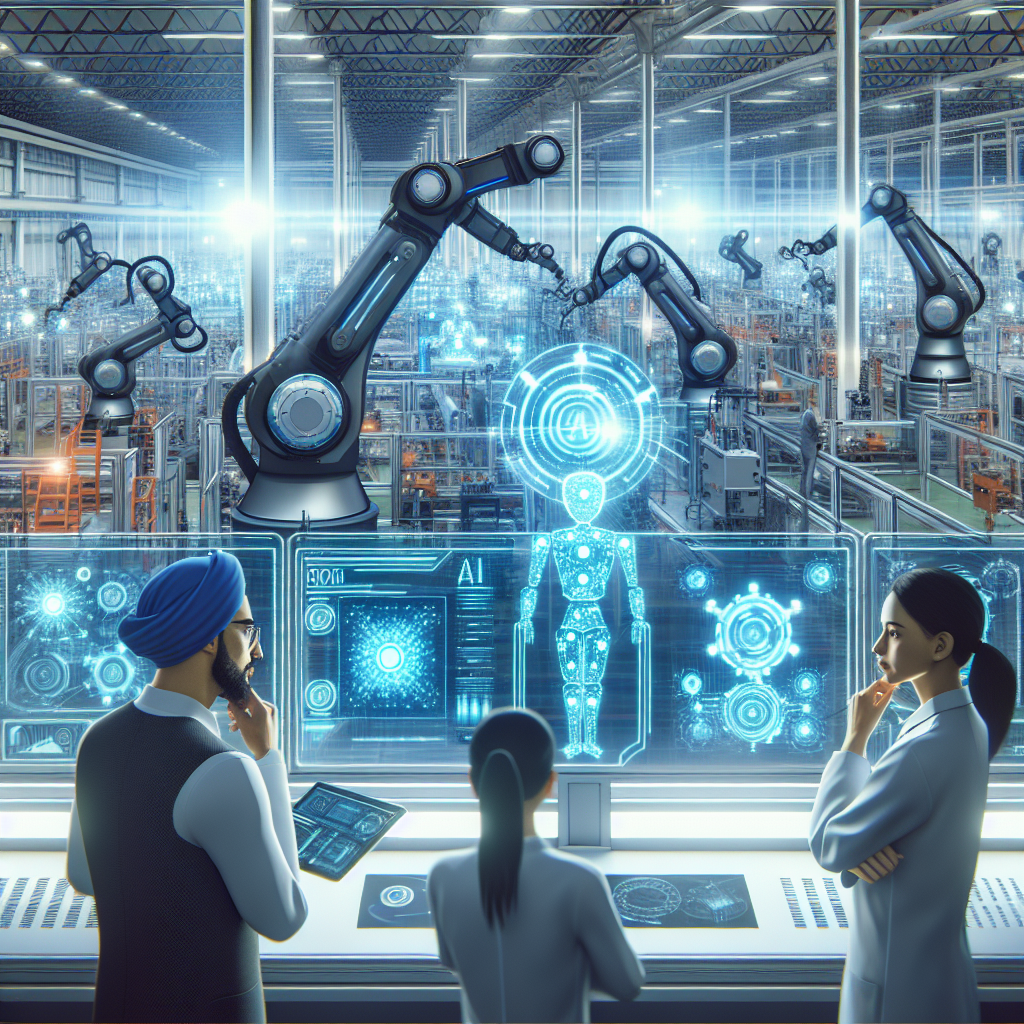The Future of AI-driven Manufacturing Execution Systems
Manufacturing Execution Systems (MES) have long been a critical component of the manufacturing process, helping to streamline operations, improve efficiency, and ensure that production runs smoothly. With the rise of artificial intelligence (AI) technology, MES systems are poised to undergo a significant transformation in the coming years. AI-driven MES systems have the potential to revolutionize the manufacturing industry, offering a level of automation and intelligence that was previously unimaginable.
AI-driven MES systems leverage the power of advanced analytics, machine learning, and other AI technologies to optimize production processes, predict maintenance needs, and improve overall efficiency. These systems can analyze vast amounts of data in real-time, identify patterns and trends, and make data-driven decisions to improve performance. By harnessing the power of AI, manufacturers can achieve new levels of efficiency, productivity, and competitiveness.
One of the key benefits of AI-driven MES systems is their ability to predict and prevent issues before they occur. By analyzing historical data and real-time information, these systems can identify potential problems in the manufacturing process and take corrective action to prevent downtime or quality issues. For example, AI-driven MES systems can predict equipment failures before they occur, allowing maintenance teams to proactively address issues and avoid costly downtime.
In addition to predictive maintenance, AI-driven MES systems can also optimize production schedules, improve quality control, and enhance overall efficiency. These systems can analyze production data to identify bottlenecks, optimize workflows, and improve resource utilization. By automating routine tasks and providing real-time insights, AI-driven MES systems can help manufacturers reduce waste, improve throughput, and increase profitability.
Another key advantage of AI-driven MES systems is their ability to adapt to changing conditions and requirements. These systems can learn from past performance, adjust to new data inputs, and continuously improve over time. By leveraging AI technologies, manufacturers can build more flexible and responsive production systems that can quickly adapt to changing market conditions, customer demands, and regulatory requirements.
As AI-driven MES systems become more prevalent in the manufacturing industry, several trends are expected to shape their future development. One of the key trends is the integration of AI-driven MES systems with other advanced technologies, such as the Internet of Things (IoT), robotics, and 3D printing. By combining these technologies, manufacturers can create interconnected, intelligent production systems that can communicate, collaborate, and optimize performance in real-time.
Another trend is the increasing focus on data security and privacy. As AI-driven MES systems collect and analyze vast amounts of sensitive data, manufacturers must ensure that this information is protected from cyber threats and unauthorized access. By implementing robust cybersecurity measures and compliance protocols, manufacturers can build trust with customers and partners and safeguard their valuable data assets.
Moreover, the rise of edge computing is also expected to impact the future of AI-driven MES systems. Edge computing enables data processing and analysis to occur closer to the source of the data, reducing latency and improving real-time decision-making. By leveraging edge computing technologies, manufacturers can enhance the speed, reliability, and efficiency of their AI-driven MES systems, enabling them to operate more effectively in dynamic, fast-paced production environments.
Ultimately, the future of AI-driven MES systems holds great promise for the manufacturing industry. By harnessing the power of AI technologies, manufacturers can unlock new levels of efficiency, productivity, and innovation, driving growth and competitiveness in an increasingly digital and interconnected world.
FAQs:
Q: What are the key benefits of AI-driven MES systems?
A: AI-driven MES systems offer several key benefits, including predictive maintenance, optimized production schedules, improved quality control, and enhanced overall efficiency. These systems can analyze vast amounts of data in real-time, identify patterns and trends, and make data-driven decisions to improve performance.
Q: How can AI-driven MES systems improve production efficiency?
A: AI-driven MES systems can optimize production schedules, improve resource utilization, and identify bottlenecks in the manufacturing process. By automating routine tasks, providing real-time insights, and adapting to changing conditions, these systems can help manufacturers reduce waste, improve throughput, and increase profitability.
Q: What trends are shaping the future of AI-driven MES systems?
A: Several trends are expected to shape the future development of AI-driven MES systems, including the integration of AI with other advanced technologies, such as IoT, robotics, and 3D printing, the focus on data security and privacy, and the rise of edge computing. These trends are expected to drive innovation, efficiency, and competitiveness in the manufacturing industry.
Q: How can manufacturers ensure data security and privacy with AI-driven MES systems?
A: Manufacturers can ensure data security and privacy with AI-driven MES systems by implementing robust cybersecurity measures, compliance protocols, and data encryption technologies. By safeguarding sensitive data from cyber threats and unauthorized access, manufacturers can build trust with customers and partners and protect their valuable data assets.

